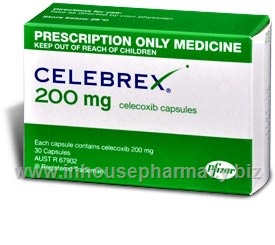
COX-2 Inhibitors Are Safe in Patients with Aspirin-Exacerbated Respiratory Disease
A meta-analysis shows that AERD patients usually will tolerate celecoxib better than meloxicam.
The triad of asthma, aspirin sensitivity, and nasal polyposis is known as aspirin-exacerbated respiratory disease (AERD). AERD is caused by inhibition of the cyclooxygenase (COX)-1 enzyme, which, in susceptible patients, causes high cysteinyl leukotriene levels and resulting asthma and rhinitis symptoms. All nonsteroidal anti-inflammatory drugs (NSAIDs) carry an FDA contraindication for patients with AERD, but such patients usually tolerate COX-2 inhibitors.
To examine the safety of COX-2 inhibitors (i.e., celecoxib and rofecoxib) or traditional NSAIDs with relatively high COX-2 selectivity (e.g., meloxicam) in AERD patients, researchers analyzed 14 blinded, placebo-controlled trials (426 patients). No patient who received COX-2 inhibitors reported AERD symptoms; such symptoms were reported by about 8% of those who received relatively selective drugs such as meloxicam.
Abstract
BACKGROUND:
Nonsteroidal anti-inflammatory drugs (NSAIDs) cause bronchospasm in susceptible patients with asthma, often termed aspirin-exacerbated respiratory disease (AERD), with the risk being greatest after acute exposure. Selective NSAIDs that preferentially inhibit COX-2 might be safer.
OBJECTIVE:
We sought to systematically evaluate changes in symptoms and pulmonary function after acute selective NSAID or COX-2 inhibitor exposure in patients with the AERD phenotype.
METHODS:
A systematic review of databases was performed to identify all blinded, placebo-controlled clinical trials evaluating acute selective NSAID or COX-2 inhibitor exposure in patients with AERD. Effect estimates for changes in respiratory function and symptoms were pooled by using fixed-effects meta-analysis, with heterogeneity investigated.
RESULTS:
No significant difference in respiratory symptoms (risk difference, -0.01; 95% CI, -0.03 to 0.01; P = .57), decrease in FEV1 of 20% or greater (RD, 0.00; 95% CI, -0.02 to 0.02; P = .77), or nasal symptoms (RD, -0.01; 95% CI, -0.04 to 0.02; P = .42) occurred with COX-2 inhibitors (eg, celecoxib). Selective NSAID exposure caused respiratory symptoms in approximately 1 in 13 patients with AERD (RD, 0.08; 95% CI, 0.02 to 0.14; P = .01). No significant differences were found according to leukotriene antagonist exposure or whether NSAIDs were randomly allocated.
CONCLUSION:
According to clinical trial evidence in patients with stable mild-to-moderate asthma with AERD, acute exposure to COX-2 inhibitors is safe, and selective NSAIDs exhibit a small risk. Thus COX-2 inhibitors could be used in patients with AERD or in patients with general asthma unwilling to risk nonselective NSAID exposure when oral challenge tests are unavailable.
COMMENT
Traditional NSAIDs with relatively high COX-2 selectivity are 10 times more selective for COX-2 than for COX-1, whereas COX-2 inhibitors are >100 times more selective for COX-2. In AERD patients who require anti-inflammatory or analgesic agents other than low-dose acetaminophen, celecoxib is a safe option. If price is a barrier, most patients will tolerate meloxicam, but, because life-threatening reactions can occur, meloxicam should be given to AERD patients only in facilities that are prepared to treat severe respiratory reactions.
David J. Amrol, MD reviewing Morales DR et al. J Allergy Clin Immunol 2014 Jul.
CITATION(S):
Morales DR et al. Safety risks for patients with aspirin-exacerbated respiratory disease after acute exposure to selective nonsteroidal anti-inflammatory drugs and COX-2 inhibitors: Meta-analysis of controlled clinical trials. J Allergy Clin Immunol 2014 Jul; 134:40.
[PubMed® abstract]





 留言列表
留言列表
 線上藥物查詢
線上藥物查詢 